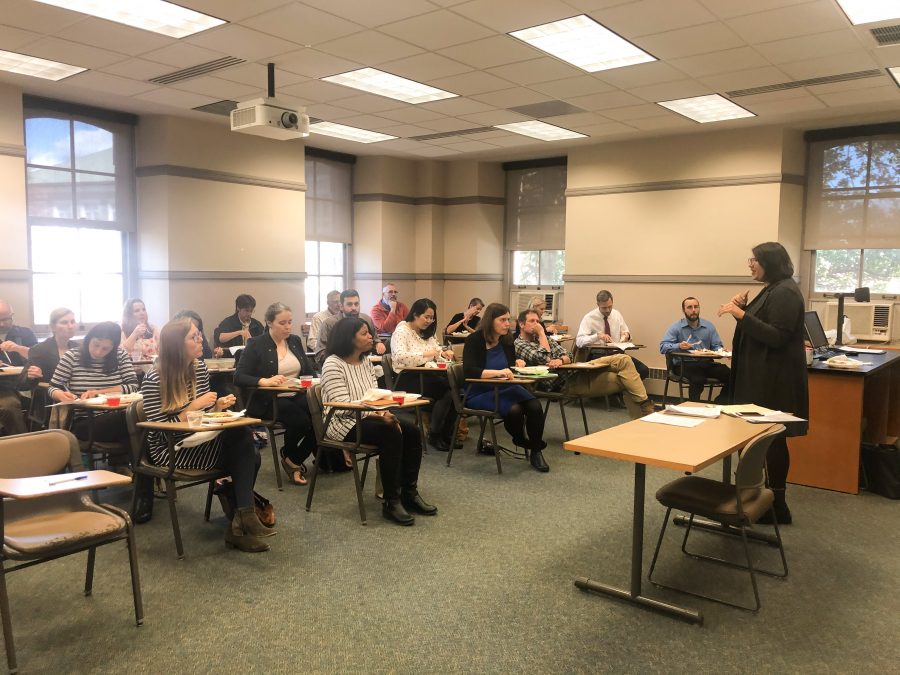The class of 2023 is one of the most diverse incoming classes in Lafayette history. With increasing class sizes and increasing diversity, making classrooms inclusive for all students is a priority for professors at Lafayette. Dr. Angela Bell, assistant professor of psychology and the CITLS 2019-2020 Distinguished Teaching Faculty Fellow, addressed this concern and offered potential solutions to Lafayette faculty this past Wednesday.
The talk was sponsored by the Center for the Integration of Teaching, Learning and Scholarship (CITLS), an organization on campus that offers services and programming to support faculty as “teacher-scholars,” according to their website. The presentation was advertised as applying “inclusive pedagogy to a variety of sources.”
According to Tracie Addy, the center’s director, Bell’s presentation was the latest installation in a series of lectures on inclusive teaching.
Although her research covers “stereotypes, discrimination, and prejudice,” Bell said her interest in “inner group behavior, or how people interact within their ‘in-group’ versus their ‘out-group’ members” was what led her to contribute to the presentation.
“I’m interested in ways of inclusive learning and applying my knowledge as a social psychologist to the classroom,” Bell said. “[The event] gave me an opportunity to apply what I research.”
Bell began her presentation, “Establishing an Inclusive Classroom,” with an exercise she uses towards the beginning of some of her psychology classes. The “inside or outside activity” began with faculty writing down the emotions they have felt when ostracized. Faculty then introduced themselves to others in the room not with their name, but with those emotions.
“Nice to meet you, I’m lonely and angry,” said one professor.
The discussion then shifted to how one feels when included, with common answers being “happy, strong, and empowered,” among others.
After discussing common ways in which people who feel left out or included act around others, Bell turned the conversation to the audience, asking them what they like and dislike about teaching.
The consensus of the room showed that grading was not the most popular activity among professors, though the faculty spoke highly of seeing their students succeed and develop.
Bell advocated in particular that the “faculty incorporate their students in developing their syllabi and contracts for the classroom environment.”
These “contracts” concern rules for discussion and group work done in class. Bell noted that there is no “one size fits all” technique for establishing the syllabi.
“It’s dependent on the class that I [teach],” she said. “I have my own baseline…suggestions, but it really is class-dependent, because my students who are in an [introduction] to social psychology are going to be very different from students who are seniors in [capstones] and studying prejudice.”
She told the room that such a contract would also work before introducing a group project.
The goal of these contracts is just “really trying to meet the students where they’re at,” Bell explained.























































































































